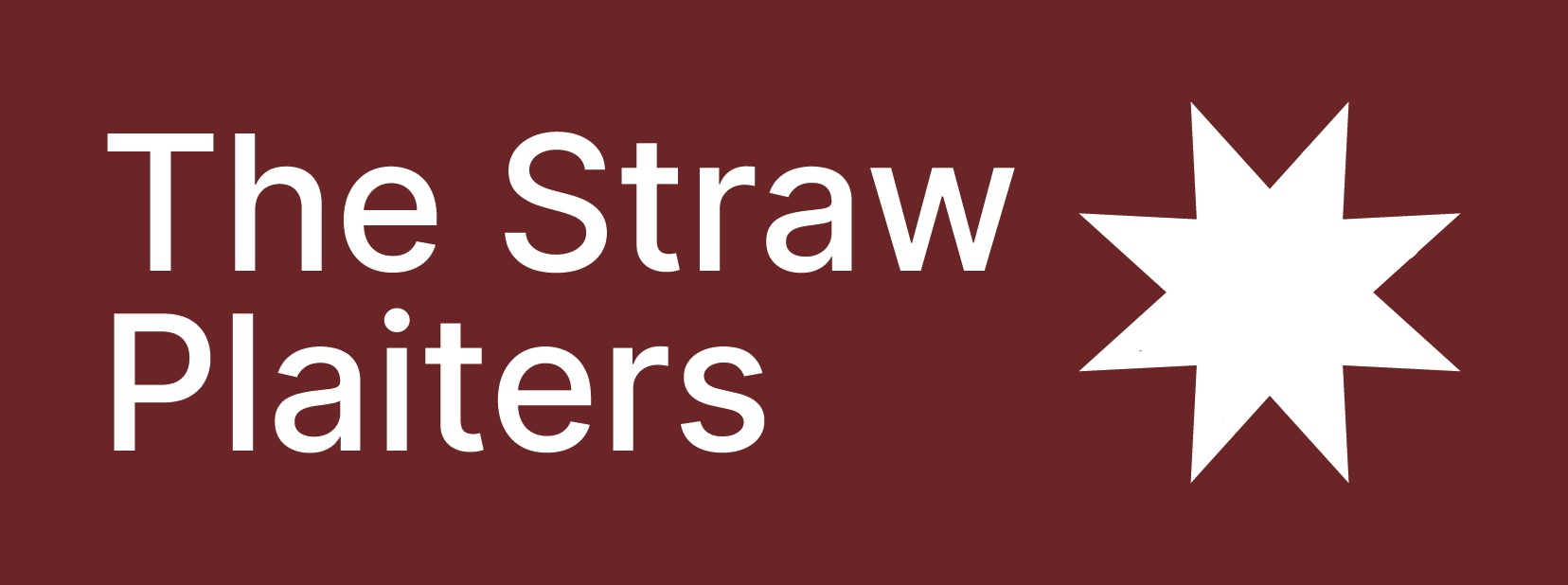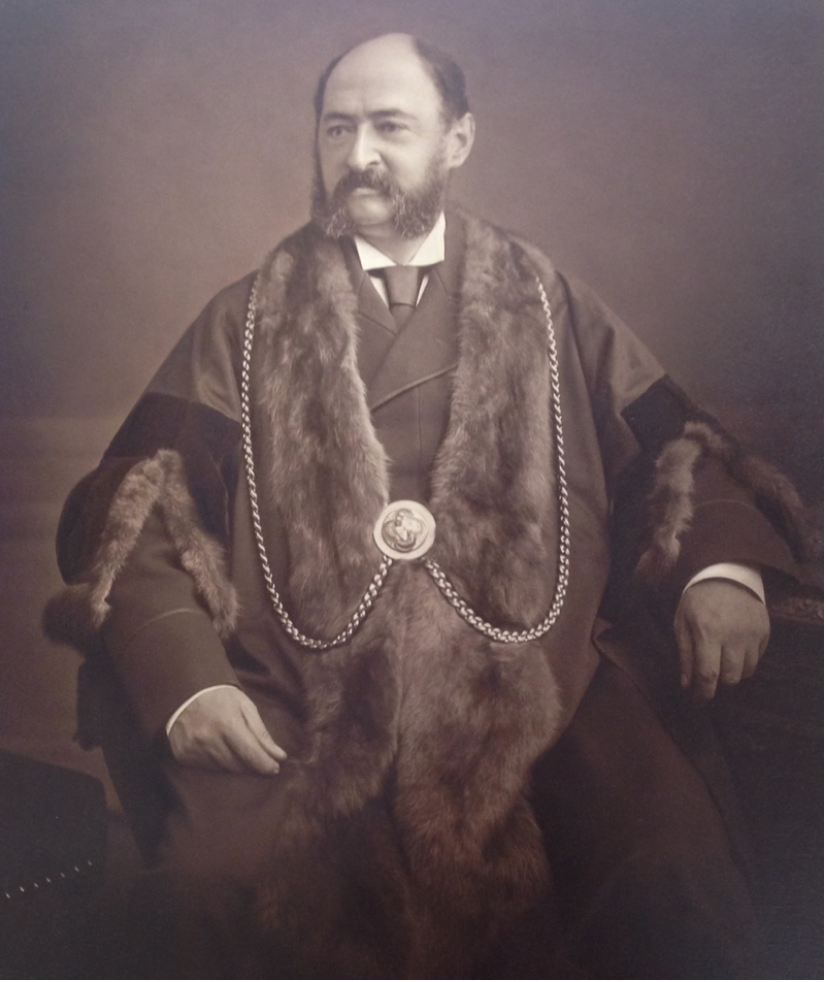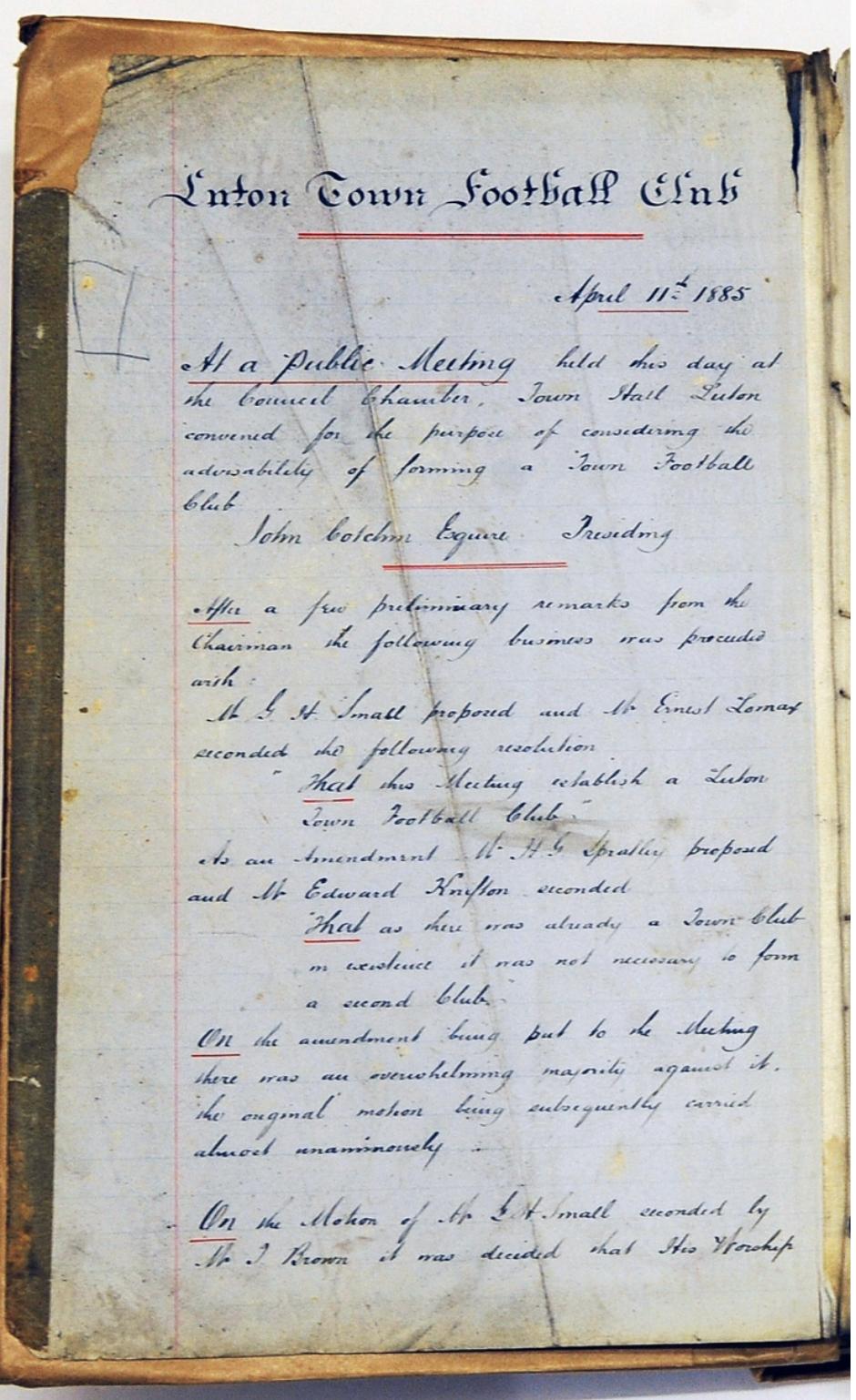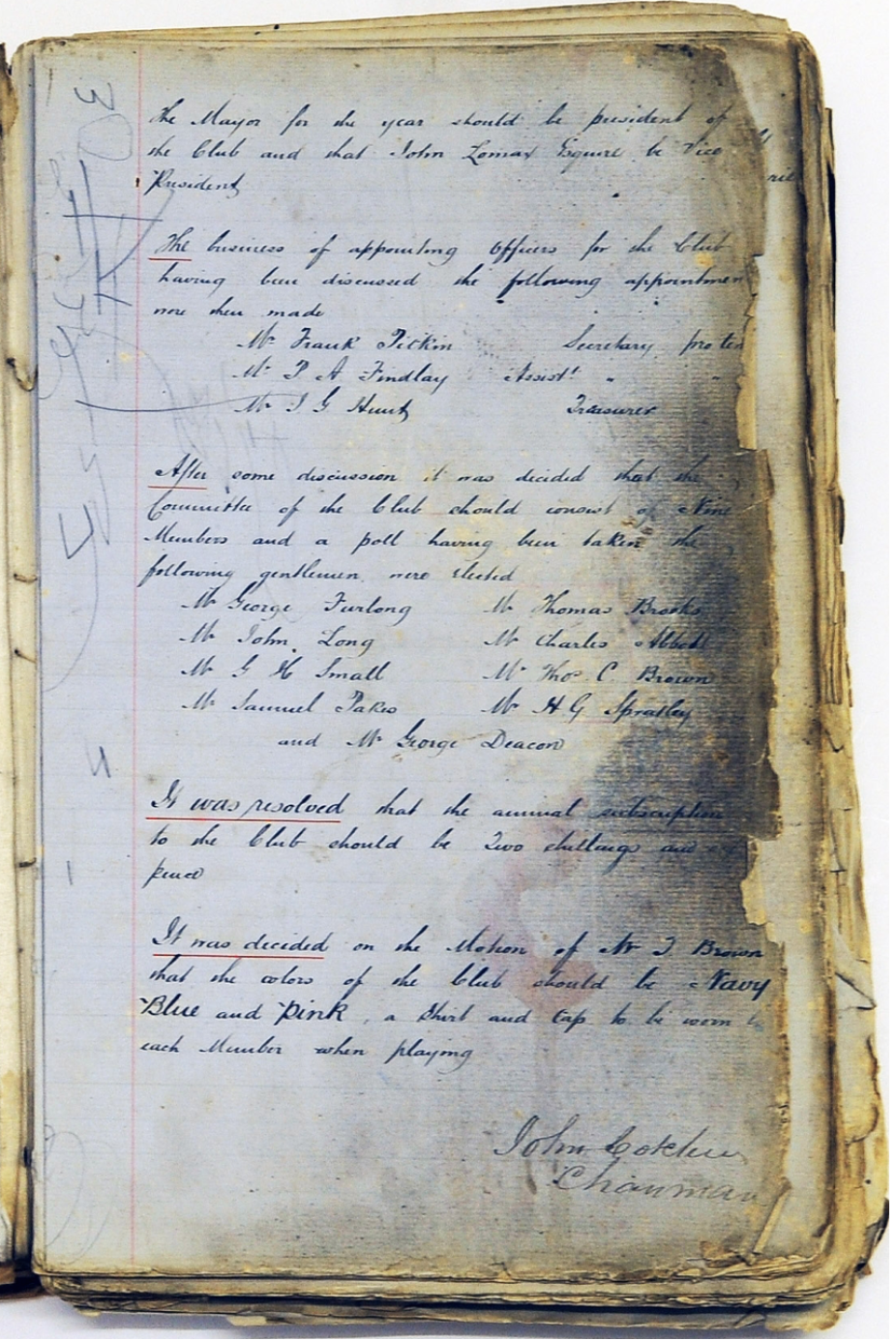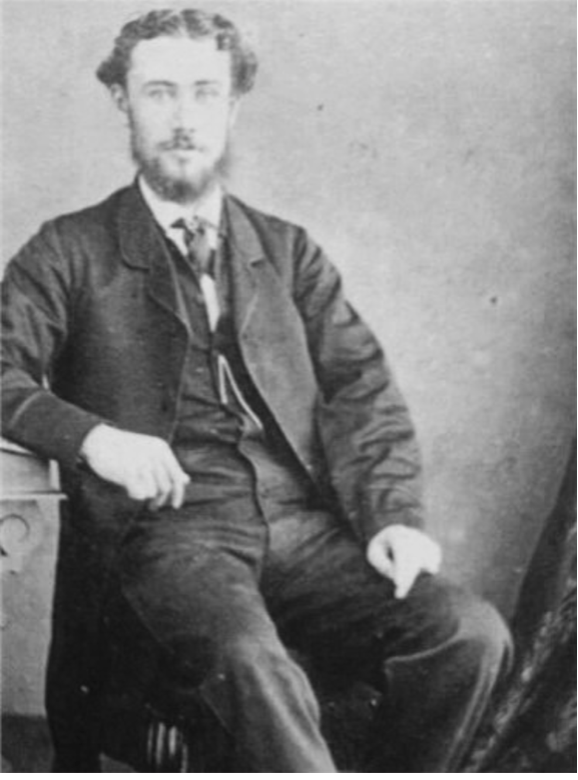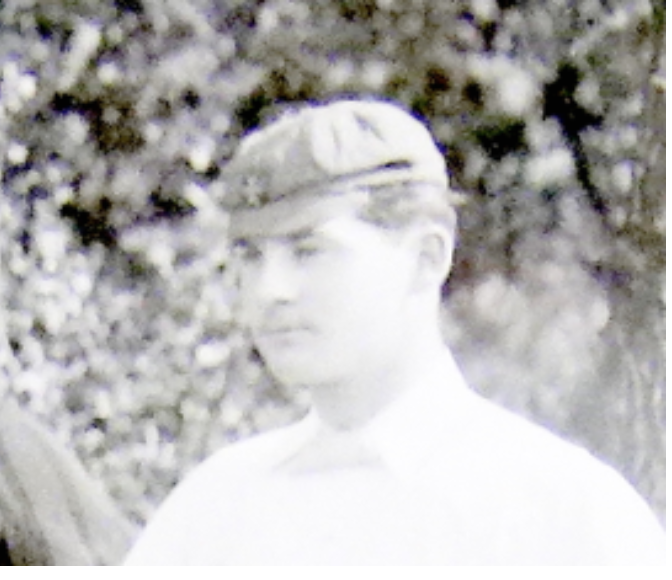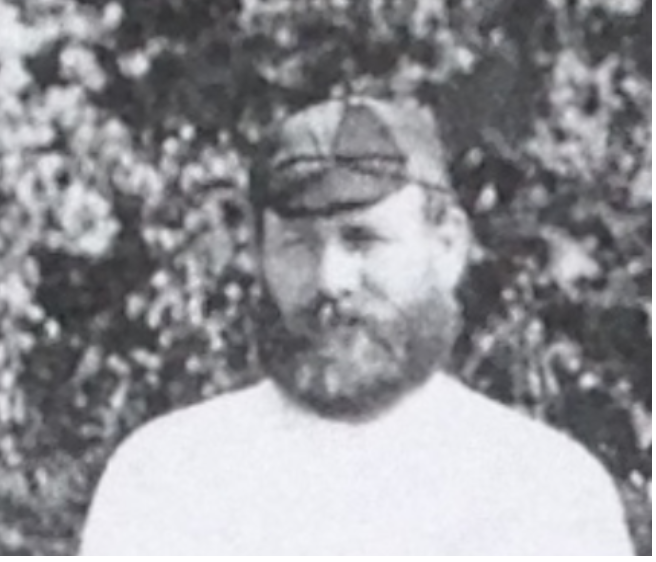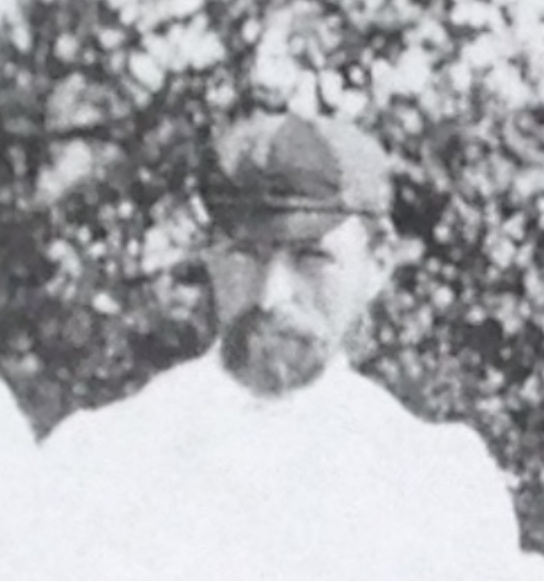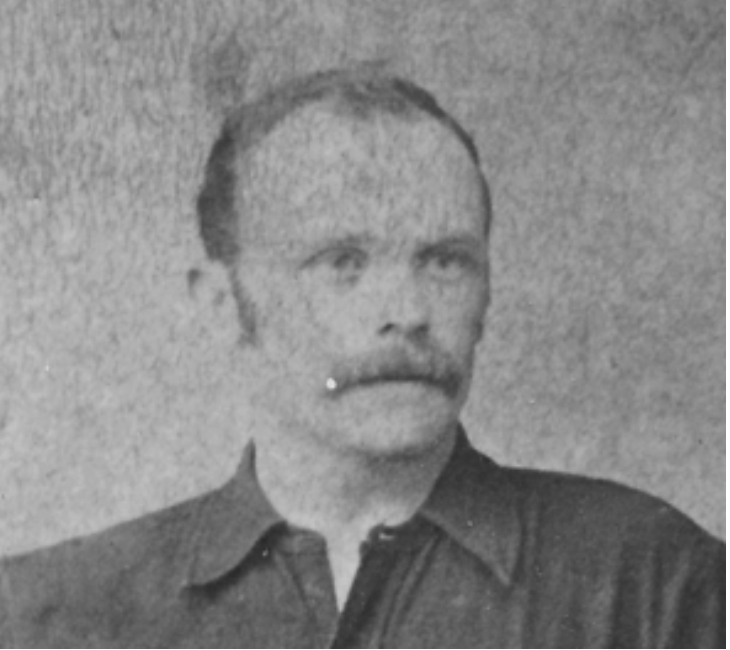CHAPTER SIX – 11TH APRIL 1885
Page 1 – Novelty match
Page 2 – Spratley’s letter
Page 3 – Formation of Luton Town F.C.
Page 4 – Analysis of the meeting
Page 5 – John Cotchin
Page 6 – Merger/Amalgamation?
Page 7 – LTFC minute book entry
Page 8 – The committee men and officials
Page 9 – Final thoughts
We arrive at the momentous day, Saturday 11th April 1885. The East Midlands Counties Football Association had a game at Cambridge against that county. However, no players from Luton were in the team. There were more important matters to be concluded in Luton, off the pitch.
The day opened with Luton Town (late Wanderers) holding a –
“novel match – A match under this title took place in the Town’s Club (Wanderers) meadow, Dallow Lane, on Saturday afternoon, the proceeds of which were given to the Bute Hospital. The amount taken at the gate was £6 0s 6d, which was handed over to the Secretary of the Hospital on Wednesday. The proceeds would, no doubt, have proved much larger if the weather had been more propitious. A bitterly cold wind was blowing all the afternoon, while rain fell during a portion of the match, making play exceedingly uncomfortable, and looking on equally unpleasant. The “novelty” consisted in wearing black high hats by one team, and white ones by the other. It had been found impossible to procure sufficient white hats to supply the whole of the white hat team, and a number of black hats were accordingly whitewashed. As may be imagined, the players in the white hats presented a ludicrous appearance, and when the hats had been smashed in and worn bottom upwards, the absurdity was even more apparent. There was some good play on both sides, but from the commencement of the game, it was evident that the players regarded the match as an excellent opportunity for “clowning” more then for sober football playing. The game resulted in a victory for the “black hats” by five goals to two. The Alliance brass band met the players at the head quarters of the Town (Wanderers) Club and preceded them to the meadow, where they played during the match. The players were White hats. Goal – G. Long. Backs – H. Furman and W. Bird. Half Backs – L. Abrahams, G. Bennett and T. Brooks. Forwards – G. Worboys, A. Deacon, H.G. Spratley, W. Smith and T. Bullock.
Black hats. Goal – T. Veale. Backs – A. Martin and W. Barrett. Half backs – W. Garrett, J Clark and J Ellingham. Forwards – G Deacon, R. Ellingham, G Davis, W. Lichfield and H. Palmer. H. Williams and J. Bennett (umpires), referee L. Stanbridge. A meeting of the Town Club (late Wanderers) will be held at the Cricketers Arms, on Tuesday evening, April 21, chair to be taken at 8 o’clock”.
– From the Luton Reporter
Most of the Wanderers were present which is not surprising as this was a charity event and not a time for politics. The Lomax brothers were conspicuous by their absence but they would be present for the meeting later in the day.
__________________________
Page 2
For those of you reading this chapter in isolation, I will briefly recap. Luton Wanderers had changed their name to “Luton Town Football Club” at a meeting on the 13th January 1885. The Secretary of that club, Herbert George Spratley, was behind that name change and it did not go down well with many in the town. A meeting was called for 11th April 1885 at Luton Town Hall calling for the formation of a “Town Football Club.”.
The Luton Reporter was officially published every Saturday. Therefore a copy is dated Saturday 11th April 1885. However, it hit the streets on the Friday and on occasions on Thursday. This was all part of the circulation war with the Luton Times. The 11th April 1885 Luton Reporter carried a letter from Herbert Spratley just in time for the meeting at the Town Hall. It would have been read by most football lovers in the town well beforehand.
There are no hard copies of the paper so this copy is taken from a scan so I apologise for the poor quality. It reveals that the meeting was arranged via placards. I take these to be sandwich boards paraded through town or fixed placards on noticeboards. The placards obviously called a public meeting for the formation of a Town Club. While there is no record of any debate in the newspapers we must assume that the subject had been talked about at length since 13th January. Spratley’s observation that the placards are unsigned is a dig at the courage of the men who produced them. Spratley’s arguments against the Town Club are revealed in advance to his opponents and on the face of it, they are strong ones. There was already a Town Club and there could not be two. He was correct that Luton Wanderers were the “head club of the town.” He also inferred that the Luton Wanderers committee, properly constituted, made a decision to change the name of the club. This was an internal decision which no-one else had the right to challenge except through the constitution of the club. Finally, George Deacon and others had wanted a Town Club two years earlier but nothing had been done. The name “Luton Town Football Club” was unused prior to 13th January and up for grabs. Luton Wanderers had claimed it. George Deacon played for them. So what was the problem? What was the cause of the friction and led to the need for a public meeting on the 11th April 1885?
_______________________
Page 3
The details of the evening meeting were published in the Luton Reporter. I have made one comment in square brackets to emphasise the drama, nothing else has been changed.
“Formation of a Town Football Club
A meeting was held in the Council Chamber of the Town Hall on Saturday evening to consider the expediency of forming a Town Football Club. Mr Cotchin presided and there was a large attendance of persons interested in football, a great number of members of the Clubs at present existing in the town being present. Immediately after the issue of the “posters” calling the meeting a notice was issued by Mr H.G. Spratley (secretary of the present Town Club) calling upon members of the latter club to assemble at the conclusion of the “novel” match in Dallow Lane to consider what course should be take-in consequence of the proposal to “form another Town Club”. There was but a very small attendance, but the members resolved to attend the meeting in the evening. In accordance with the decision a large number of members of the present Town Club attended at the public meeting, including Mr H.G. Spratley, who was regarded as the “champion” of the opposition. The opposition to the formation of a new club was evidently very great amongst the followed Mr Spratley’s lead, and expressions of dissent to the opinions advanced by the various speakers in favour of the proposed course were frequently heard, while at one period of the meeting, there seemed to be great danger of a general row. However, this was avoided and the lovers of football separated without the expected contretemps.
The Chairman, in opening the meeting, said he was very pleased to see such a goodly gathering. He took the position he occupied at the request of two or three young gentlemen whom he knew to be respectable and actuated by motives of the purest kind, which brought them to him on that question. They said they had every reason to believe that it was the desire of young men that a Town Football Club should be formed, and that the very best players of every club would amalgamate. That was the great reason why he appeared there but he would be no party to any dissensions among them He hoped they would give free expression of their opinions; let it be done in a gentlemanly way and he would undertake to say that everyone should have a hearing. He was somewhat astounded to read a letter signed by Mr H.G. Spratley calling into question the right of calling a public meeting. He thought everybody had a right to do that. If meetings were called publicly it was quite correct but if it had been a “hole and corner” meeting Mr Spratley would have been right in objecting. This meeting, however, was perfectly open and fair. He was very sorry to see that letter, but hoped nothing would come of it. He was glad to see so many present, and hoped they would all leave good friends.
Mr J.C. Lomax was called upon to give his opinion upon the proposed formation of a Town Club, said he was most emphatically in favour of a proposed Luton Town Football club, not, however, for the breaking up of any other club. The reasons he advanced were that the proposed club would give more scope to find out who were really the best players to play in the town matches: it would give them more opportunity of showing what they were as football players; and it would form a good club for the training of young players, who could thus work up to play in the town matches. He could not quite see any objection to the proposal, because it would do away with all that petty feeling which had hitherto existed. Taking all these points into consideration, he might say he was very emphatically in favour of the establishment of a club which could really be called the Luton Town Football Club. Mr Brooks thought there was no need of another Town Club; there was one already (a voice “There is not” and “Order”).
Mr John Read would like to know when the first Town Club was formed. He contended that lovers of football had not a fair voice in the matter of forming a Town Club, and they thought if placards had been posted with reference to that matter, there would have been no need of the meeting that night.
Mr John Long said that with regard to the meeting in High Town when the present town club was formed, he had been a member of the Wanderers or the Town Club since its formation, and as soon as he heard of the movement he inquired what business at the meeting was to be, and was distinctly told by one of the Wanderers’ Committee men that the business was not to be divulged by any of the Committee. He did not know what business was coming on, and consequently, did not attend the High Town meeting. Having expressed his wish for the improvement of football, he said the idea of forming a really representative Town Club was first mooted to him by a man who was a member of Luton Town Cricket Club, and was a prominent football player – Mr Deacon – who said “What a good club we could have if we could amalgamate”. He had tried what he could to produce a friendly feeling in the matter and might say that the movement originated with Messrs Lomax and Deacon. He should feel pleased if he could see football improve in the town, and thought that if the best team was put into the field that there were not many towns to beat them.
Mr Bennett thought that if the Excelsior and the other clubs could be amalgamated it would be much better for the success of football in the town. The Committee of the present Town Club were not be be blamed for what Mr Spratley had done in the matter of the present meeting. The letter referred to by previous speakers had been published without the knowledge of any any member of the Committee. He had nothing to say against the forming of a Town Club but at the same time, he should like to see it done in a proper way.
After further discussion, in the course of which the proposal to form a fresh Town Club was generally supported.
Mr Small moved “That this meeting establish a Town Football Club to be called “The Luton Town Football Club” (cheers).
Mr Ernest Lomax seconded.
Mr Scott in supporting, said there was no need for all the present clubs to be extinguished owing to the formation of a central town club, because all the small clubs would conduce to the success of the Town Club (hear hear and applause).
Mr Spratley entered at this point, and was received with applause [SPRATLEY ENTERS THE MEETING AT THIS POINT, JUST BEFORE THE VOTE]. The position of affairs was explained to him by the Chairman, and he then said he thought there was no need for the proposed club, as there was a town club already in existence.
The Chairman contended that Mr Spratley had no right to write the letter he had written. Every Englishman had a perfect right to hold a public meeting, and Mr Spratley had no right to object to it. Mr Spratley had done so without the knowledge and sanction of the committee, and on his own authority. He then asked Mr Spratley what authority he had to call the present club a Town Club (hear hear).
Mr Spratley: The authority of the members (laughter). A public meeting was held; it was advertised in the papers (“Oh”).
In answer to a further question, Mr Spratley said the meeting was one for members and friends. There was no secrecy about the business of the meeting. Mr Long said Mr Spratley was correct in stating that the meeting was one of subscribers and friends and repeated his assertion that the nature of the business of the meeting had been kept secret. He thought that, however, it was not a public meeting (hear hear).
Mr Spratley: I called a meeting of members and friends; that was a public meeting (laughter). We never debarred anyone from coming in. The meeting was called in the Luton papers and the London sporting papers – (cries of “No”) – and the result was published in all the sporting papers.
The Chairman : “What date was that?”.
Mr Spratley : January 13.
The Chairman : Do you propose an amendment?”
Mr Spratley : “I don’t think that a Town club need be formed as there is already one started”.
Mr Hemingway thought that the Wanderers should be credited with good intentions in taking the name of the Town Club ; the name had given them a better locus standi.
Mr Nipton was understood to second Mr Spratley’s amendment.
Mr J.C. Lomax intimated that he would not play for the Wanderers unless it was made a proper Town Club. It was understood that Messrs Ernest Lomax, Deacon and Martin had also declined to play under existing circumstances.
Another discussion
Mr Deacon spoke in favour of the proposed formation of the club and said he had been wanting it for two years.
Mr Stanbridge thought that if Mr Spratley looked at the matter in the right light he would withdraw his amendment.
Mr Spratley : That I certainly shall not. In reply to a somewhat offensive remark, he added that he certainly did not want to play in the new club. He was requested by the Chairman to write his amendment and there upon handed in an amendment as follows “That as there is already a Town Club in existence, it is not necessary to form a second Town Club”.
On the amendment being put to the meeting, there was an overwhelming majority against it, the original motion being subsequently carried almost unanimously.
It was decided upon the motion of Mr Small, seconded by Mr T Brown, that the Mayor for the year should be President of the Club.
Mr Shackleton proposed that Mr Lomax, Senior, should be vice-president.
Mr J.C. Lomax said he was sure his father would have great pleasure in becoming vice-president. His father had told him he would be very glad to subscribe two guineas annually to the club, as he thought it the best thing for the town.
The nomination was agreed to.
Mr Small proposed the election of Mr F. Pitkin, as Secretary Pro tem.
Mr P Deacon seconded, and the motion was carried.
Mr P. Findlay was appointed assistant secretary.
Mr J.G. Hunt was elected treasurer.
It was decided after some discussion, that the Committee should consist of 9 members and, a poll having been taken, the following gentlemen were elected:- Messrs Deacon, Brooks, Furlong, J. Long, Small, F. Brown, Pakes, Spratley and Abbott.
It was decided that the annual subscription should be 2s 6d and that the club should enter for the Association Challenge Cup.
Mr Brown proposed that the colours of the club should be navy blue and pink, a shirt and cap of the club colours to be worn by each member when playing.
This motion was agreed to.
It was decided that a meeting of the committee should be held on Saturday evening, April 18th, to consider matters of detail connected with the working of the club.
A vote of thanks to the Chairman was unanimously accorded, and the Chairman’s reply concluded the proceedings”.
End of the report as per the Luton Reporter newspaper.
The comments in brackets such as (laughter), (Oh) and (hear hear) represent the reaction of the crowd in the chamber to what is being said and add tremendously to our understanding and entertainment. Mr Nipton is described as Mr Nifton in the Luton Times. The Times report is smaller and the only addition of interest is – “the movement was favoured by most of the football players of the town. Hitherto there have been many weak clubs in the town; now it is hoped that Luton will have a club able to play any in the kingdom.”
_________________________
Page 4
Herbert Spratley’s pre-meeting meeting with his supporters was presumably to discuss tactics. His decision to set a trap by entering the meeting just before the vote backfired. He actually fell into his own trap as the meeting had decided the issues before his arrival. We must presume that lines had been drawn and stances taken by the major characters in the debate. Spratley may not have had much indication of the mood of the majority of those who would attend the meeting at the Town Hall. As we have seen, the paper did carry a report of the High Hats game. I have not been able to find any advertisements or anything in the news columns of the local papers mentioning the 11th April meeting. It appears that the meeting was advertised by placard only. The mention of “expected contretemps” shows that feelings were running very high and Spratley must have expected a fiery meeting. He was not disappointed. He had one argument on the lines of “possession is nine tenths of the law.” The name Luton Town Football Club was already taken some three months previously. The change was in the Wanderers’ minute book, they had played games which had been reported in the local newspapers. On the face of it, Spratley had a strong argument. However, his letter to the Luton Reporter gave his opponents the edge as they were aware of his arguments in advance. Spratley would not have been ignorant of the objections to the January 13th name change. However, he could not be certain of exactly what would be said nor what attitude the masses would adopt.
The unanswered question is why Spratley arrived at the meeting only after the motion to form the Town Club had been debated and was about to be voted upon. Tom Brooks (Brook-Knowles) objected early on by saying that there was already a Town Club. But that appears to be the only voice of dissent and he was shouted down. Spratley arrived in the meeting at the precise moment that the motion to form the Town Club was put to the vote. That was not by chance, it was pre-planned and timed perfectly. But why the theatrics? It certainly put him at a massive disadvantage as he had not heard what Read and Long had said. Cotchin filled him in on the events up to his entrance.
Spratley had not heard the re-assurances given that other clubs need not be disbanded to make way for the Town Club. J.C. Lomax appears to be the first person asked to speak after Cotchin’s opening address. This strongly indicates that the meeting was arranged by J.C. Lomax and his brothers. It is standard procedure for the person who called the meeting to speak first. There could not have been a better speech to persuade any waverers in the hall. J.C. Lomax said that there was no reason why any club should be broken up. As we have already seen, players turned out for any club they chose and that would not change. He added that the club could draw upon the best players in the town to represent their home town club. He mentioned the training of the younger players and giving them a chance to show what they could do. What more could any waverers ask for.
That speech must have really hit the spot and summed up the philosophy that the new Town Club would follow. Spratley was in charge of Luton Town (late Wanderers) and it would seem fair to say that there would not be the the same opportunities for players at that club. When the details of the secret Wanderers meeting was revealed then his credibility was gone entirely. If we match up Spratley with the modest, wealthy gentleman John Charles Lomax then there was no contest.
It was John Read who mentioned that he knew nothing about the January Wanderers meeting. He made the pertinent point that if that meeting had been advertised then there would be no need for the 11th April meeting. He added that the football loving people of Luton had not had a fair say about the formation of a club representing their town. John Long took this up and revealed the subterfuge that the meeting in January had resorted to. Mr Long, who had been a member of Wanderers since its formation, was not told what the January meeting was about when he asked a Committee member. He therefore did not attend. Spratley’s claim that the meeting was a public one and that it had been advertised in the Luton papers and London sporting papers was exposed as a lie. The meeting may have been advertised to its members but its purpose was secret. This sealed the vote. An Excelsior player proposed and a Wanderer seconded.
_____________________
Page 5
Special praise must be made of the Chairman, Mr Cotchin (pictured below in his Mayoral regalia 1880/81). He was a great choice as Chairman by those calling the meeting. He had played football in his youth, was a councillor and former Mayor of Luton (1880-81) who was used to the cut and thrust of debate and was not fazed at all by the arguments. He kept the meeting on track whilst letting the opposition have their say, no matter how futile those arguments were. I suspect that he was sympathetic to the cause of a democratically established Town Club and not enamoured by the secret meeting of the Wanderers in January. From the point of view of the town itself, I am sure that the council could see the benefit of having a Luton Town Football Club. Although famous for the hat industry, I am sure many hoped the new club would put the town on the sporting map. Also it must have irked many in the town that Hitchin, Hemel Hempstead, St. Albans, Bedford and others had a football team in the name of their town, but Luton did not.
John Cotchin tackled Spratley on the legality of his letter. Firstly by saying that did not have the authority of the present Town Club (late Wanderers) to write such a letter to the paper, as evidenced by Mr Bennett’s speech. Nor did Spratley have the right to question the legality of a public meeting. Cotchin then questioned what authority there was to claim the name of Luton Town Football Club – his reference to a “hole and corner meeting” was a dig at Spratley’s secret 13th January meeting. Mr John Long’s statement exposed Spratley’s lie that the January meeting was a public one and that the subject of the meeting was well known. Indeed, Mr Long probably confirmed what everyone had heard around the town since January. Spratley’s statement that they never disbarred anyone from coming into that January meeting is absurd. As it was advertised as a meeting of members, it was hardly likely that anyone else would attend. Spratley was exposed by Long, and Cotchin went in for the kill by asking for the particulars of the advertisement of the January meeting. The truth was that there were no adverts and Spratley did not produce any.
Spratley’s tactics failed totally. He could, and probably should, have supported the forming of the new club. He should have stopped digging a hole for himself. Saying that he would not play for a new Town team was just childish. If he had backed down he would have avoided ridicule and received praise for paving the way for a new Town Club. Mr Hemingway tried to offer an olive branch by saying that the Wanderers should be given credit for moving the issue forward. Spratley stuck to his guns and refused to back down.
Surely Spratley must have realised that he had lost every verbal encounter, lost the arguments and been laughed at. He was not able to judge the mood of the meeting and adjust his position. So what drove him to be so pig headed? Even after much debate, when given the opportunity by Mr Stanbridge to withdraw his amendment, he refused. Experience indicates that this was a clash of personalities. Was there a grudge between the Lomax brothers and Spratley? Our suspicions about J.C. Lomax’s views on Luton Town (late Wanderers) appear to be spot on. J.C. Lomax said in the meeting he would only play for a new Luton Town Football Club. It seems clear that J.C. Lomax was behind the meeting as his father (who was not present) had agreed in advance to give two guineas to the club as he thought it was the best thing for the town. He was also the first to be called to speak by John Cotchin, presumably because he was the instigator of the meeting, as is the custom.
An olive branch was offered to Spratley and Brooks, as they were given two of the 9 places on the new Luton Town Football Club committee. (Mr Brooks had served on the E.M.C.F.A. committee and would have been a useful asset to a new organisation). There must have been a big enough crowd of Spratley supporters that he was voted onto the committee. But it may also be that praise should be given to the football lovers at the meeting. Spratley obviously loved football, and he may have made a good administrator as he was secretary of the Town Club (late Wanderers) and it may be that people realised he could do a job for the new club. They really wanted an inclusive Town Club with no one excluded. This olive branch would have been seen by the wider public as a unifying gesture and surely gained much praise. By accepting the nomination for the new Luton Town Football Club committee, and being voted onto the same, surely Spratley knew there was a conflict of interest. If he did not want to play for the new Town team, how would he fulfil his duties as a committee member?
_______________________
Page 6
To the major question; was there a merger or amalgamation of Wanderers and Excelsior? We have to ask ourselves two questions. Was the meeting between just the Wanderers and Excelsior? The meeting was a public one, advertised widely by placard and open to all and attended by “a large attendance of persons interested in football”. This was not a private meeting of just the Wanderers and Excelsior’s officials to thrash out the merger details to the satisfaction of both clubs.
The second question is; what was the motion put to the meeting? The motion was “that this meeting establish a Town Football Club to be called “The Luton Town Football Club.” There is no mention of a merger, amalgamation or abandonment of any club in that motion. John Cotchin said, when opening the meeting, that it was hoped that “the very best players of every club should amalgamate.” The “best players” should amalgamate not “clubs” should amalgamate. Attending the meeting; “a great number of members of clubs at present existing in the town, being present”. Yes, the two leading teams were present but representatives of Albany, Luton Rovers, Christ Church Institute and others were almost certainly present as their clubs were on the heels of the big boys in terms of results. After all, J.C. Lomax said that the best players in the town could be called upon to play for the new team. We will see in the next few chapters whether J.C. Lomax’s vision became a reality.
Mr Bennett said that if “Excelsior and the OTHER clubs could be amalgamated…”. Did he mean to say that? Excelsior do disappear from the newspaper reports for a few years so it may be that Excelsior did mothball themselves but no other clubs would disappear. From a football point of view it would be madness to just restrict the new Town team to players from Wanderers and Excelsior. If better players were available from other teams then, as a player, you would want them in your team. The people of Luton would want them in the team. Albany and Luton Rovers clearly had some very good players. If the Town team refused to play them when they were better than a former Wanderer or Excelsior players then the spectators would know it.
John Long quoted George Deacon saying two years earlier “what a good team we would have if we could amalgamate.” That was direct talk about amalgamating Luton Wanderers and Excelsior, presumably after the great joint team victory over Hemel. It is true that that victory sowed the seeds for a Town Club. But we have to remember that since 1883, football in Luton had expanded and there were other very good teams. Albany, St. John’s College and Luton Rovers had made tremendous progress since 1883 and had some decent players who could not be ignored – as we will see. Yes, there had been talk about amalgamation in 1883 but in 1885 excellent players such as Frank Whitby of Luton Rovers, Walter Miller and Albert Sanders of Albany and many young lads from St. John’s College had emerged.
One final point is how can there be a merger when Wanderers continued in existence and entered the next two FA Cup competitions. Excelsior would re-emerge and still be playing as late as during the First World War. As we will see shortly, not just Wanderers and Excelsior players turn out for Luton Town Football Club in the next few formative months. As J.C. Lomax intimated, an amalgamation of all the best players in Luton.
Where did the amalgamation/merger story come from? The answer is probably down to a combination of factors. Excelsior and Wanderers were by far the best teams in Luton. Their men (probably) formed the entire committee. Their men would form the first Luton Town team to play against Higham Ferrars. They proposed and seconded the motion to form the club. George Deacon mentions that he had wanted a Town Club for two years. That view was almost certainly formed after Excelsior and Wanderers had joined to play, and beat, Hemel. Excelsior disappear from the scene for a few years. All these factors probably prompted the public to commonly refer to an amalgamation/merger. The first mention of an amalgamation/merger is made in 1890 by one of the local papers. Was it worth someone writing to the newspaper to point out the error? Even if someone did bother to write, the chances of it being published were minimal. Thus the misconception began. I believe the “copy and paste” reference to a merger and amalgamation of Excelsior and Wanderers should be expunged.
________________________
Page 7
The new club obviously needed a minute book and the entry for 11th April 1885 is shown below.
The minute book reads as follows;
“Luton Town Football Club 11th April 1885
At a public meeting held this day at the Council Chamber, Town Hall, Luton convened for the purpose of considering the advisability of forming a “Town Football Club”.
John Cotchin Esquire presiding
After preliminary remarks from the chairman, the following business was proceeded with:
Mr G.H. Small proposed and Mr Ernest Lomax seconded the following resolution
“That this meeting establish a “Luton Town Football Club”.
As an amendment Mr H.G. Spratley proposed and Mr Edward Knifton seconded
“That as there was already a Town Club in existence it was not necessary to form a second club”.
On the amendment being put to the meeting there was an overwhelming majority against it, the original motion being subsequently carried almost unanimously.
On the motion of Mr G.H. Small seconded by Mr I Brown it was decided that His Worship the Mayor for the year shall be President of the Club and that John Lomax Esquire be vice president.
The business of appointing officers for the club having been discussed the following appointments were then made
Mr Frank Pitkin Secretary of the club pro tem
Mr P.A. Findlay Assistant secretary
Mr J.G. Hunt Treasurer
After some discussion it was decided that the committee of the club hold consist of nine members and a poll having been taken the following gentlemen were elected
Mr George Furlong
Mr John Long
Mr G.H. Small
Mr Samuel Pakes
Mr Thomas Brooks
Mr Charles Abbott
Mr Thos. C. Brown
Mr H.G. Spratley
and Mr George Deacon
It was resolved that the annual subscription to the club should be two shillings and six pence.
It was decided on the motion of Mr I. Brown that the colours of the club should be Navy-Blue and Pink, a shirt and cap to be worn by each member when playing.”
Note that John Cotchin signs the Minute book as Chairman of the meeting, NOT as Chairman of the Club – there was no Chairman.
_____________________
Page 8
This is a good time to discuss the rumour of an arrangement that five former Excelsior and six former Wanderers would play in one game and the number reversed in the next game. This rumour has also been attached to the make up of the committee. There is no record of such an agreement and in my view there could be no such arrangement as it would be detrimental to the team. These men, and the supporters, wanted the best possible team for their town. They wanted to win. They had ambition and dreams of glory. As we have seen, some players turned out for more than one team. There were no rules restricting the movement of players so you could turn out for whatever team you liked. The better players would have been asked to step up and play for a different team. It would have been up to their conscience whether they left their mates and played for another team or whether they juggled playing with the two teams as best they could. Most would want to test themselves against the best and find their level. If you had played against Wanderers or Excelsior and played well then why should you not try your luck with the new Town team. We shall look at the players in more depth in a future chapter. Let us see the origin of the committee members as far as is known.
George Furlong – Wanderers
John Long – Wanderers
G.H. Small – Excelsior
Samuel Pakes – Unknown
Thomas Brook-Knowles – Wanderers
Charles Abbott – Wanderers
Thomas C. Brown – Excelsior
Herbert George Spratley – Wanderers
George Deacon – Wanderers.
The officials were:
Frank Pitkin – Wanderers
P.A. Findlay – Unknown
John George Hunt – Excelsior
Meet the committee chosen to run the newly formed Luton Town Football Club.
George Furlong (above) was 42 years old. He was born in Pembrokeshire and the 1881 census shows him living at 11 Liverpool Road with his wife Mary and son, John B. Furlong (who would play for Luton Town) and three other sons. George was a schoolmaster and possibly taught at St. John’s College at this time. John B. Furlong would play for St. John’s College.
At the time of the 1911 Census he was 69 years old, and was living at 19 Russell Street, Luton with his wife of 45 years, Mary. They had had 7 children, 6 of whom were still alive. George died in Luton in 1911.
Charles Henry Abbott was 36 years old and was born in Luton. In 1881 he lived at 15 Windmill Street (which changed name to Welbeck Street in 1937) in High Town and was a Straw Hat Manufacturer.
Gilbert Howard Small (above, in his cricket cap) was born in Clare, Suffolk in 1864. In 1881 he was a Straw Hat Warehouseman and lived with his widowed mother at 50 Dunstable Road. He was also a gifted cricketer and played for Luton Town Cricket Club. His older brother Oliver F. Howard was also a warehouseman. His mother received a pension and they were well off enough to have a servant.
By 1891 he lived at Victoria Villas, Dunstable Road with his Mother and Oliver who was a Straw Hat Manufacturer. Gilbert was a manager of a Straw Hat factory.
By 1901 he was married to Amy and had 5 children and was living at 31 Brook Street. He was now a Straw Hat manufacturer.
He died in Luton in 1922 aged 58.
Samuel Pakes (above, in his Luton Town Cricket Club cap) was born in Luton in 1833. In 1871 he was a Blocker but by the 1881 census he is described as being a Straw Hat Manufacturer. He lived at 46 Collingdon Street with his wife, three sons and two daughters. he was on the committee of the Luton Town Cricket Club for many years. He died in Luton in 1902.
John Long (above, in his Luton Town Cricket Club cap) was born in 1841 in Luton.
In 1871 he lived at 121 Wellington Street and was a postman. His wife, Jane, was a Bonnet Sewer. He lived there with his Brother-in Laws, Charles Chandler who was a Master Butcher and Robert Chandler who was a Telegraph Messenger.
In 1881 he was a Straw Hat Manufacturer and lived at 10 Wenlock Street with Jane, who was a Straw Hat sewer.
He died in Luton in 1892.
Tom Brooks, real name Tom Brook Knowles also known as Tom Brooke, Tom Knowles and Tom Brook-Knowles was born in Gomersal, Yorkshire on the 27th November 1854. He married a Luton girl, Emily Smith on the 18th November 1877 In 1881 they were living in Cleckheaton, West Riding, Yorkshire. I have contacted a descendant but we do not know how they met. Tom is described on the 1881 census as a “Woollen Spinner (out of work) and Emily a milliner. They moved to Luton for work. His first football game in Luton was on Boxing Day 1881 for the Wanderers. So they moved to Luton between April and December 1881. They had a son, Stanley in the summer of 1883.
However, Tom met Ann Hawes, who was from Flamstead, and by 1891 he was back in Yorkshire living with her. She was ten years younger and they had had a son in 1889, also named Tom.
The number of names he is found under could mean that he had money worries in Yorkshire in 1881 and was being chased by creditors. However, it is equally likely that his name was confused by all who met him including the person who wrote the newspaper reports and the Luton Town minute book. While Ann is described as his wife on the 1891 census there is no record of a divorce between Tom and Emily. His descendant said that Tom’s father disowned him so there were serious issues involved.
Emily stayed in Luton and lived with her mother and sister in 1891. Her son is named as Stanley Smith. In 1901 she lived with Stanley and her employment was “on own account” so she was fine for money. Emily continued to live with Stanley in 1911 after he married. As a hat sewer she would have had an invaluable source of earnings which probably kept her from the Workhouse.
Tom Brook-Knowles died in Leeds on the 20th October 1924.
Thomas Charles Brown
Born in Ampthill on the 25th March 1854. He married a Luton girl, Emily Trott on the 7th October 1878. In 1881 he was a Straw Hat manufacturer living with Emily and son Stanley at 27 Liverpool Road. They had a servant who came from Hitchin and employed a nurse from Barton, presumably to look after Stanley who was 2 at the time.
By 1891 they had bought a hotel in Hastings, the Pelham Arms. The entire family was living there with one servant. The hotel changed its name to the Carlisle Hotel in 1899 and is still there on the seafront. In 1901 Thomas was a fishmonger in West Tarring, Sussex and by 1911 he was in Frensham Surrey. Aged 58 he is described as a Professional Cricketer! A man with a sense of humour – his son was described as a professional golfer on the same census form. He died in Brentford in 1936.
Herbert George Spratley
Born in 1862. His father was a cricket bat maker. There were many Spratley’s in the town and there were many businesses in their name. One Spratley had a shop in Barbers’ Lane which sold sporting goods. Herbert had a brother and two sisters. They lived at 34 Bute Street. By 1881 19 year old Herbert was a block maker and living with his parents at 16 Havelock Road, High Town. His father at this time was a block maker employing 4 men and two boys.
Herbert married Hannah on Christmas Day 1882 and by 1891 they had two sons and a daughter. They lived at 39 Cardigan Street.
George Deacon (above) was born in Luton in early 1859 and lived at 5 Cobden Street. His father William was a blocker and his mother a hat sewer. In 1871 they lived at the back of 200 Old Bedford Road with his parents and brothers William aged ten and Albert aged 6. He had an elder sister, Martha. He married Emma Cherry on the 25th February 1878 at St. Mary’s Parish Church. They lived at 41 Dudley Street, in High Town. He, like his father, was a Straw Hat blocker. Emma was a straw hat sewer. They had 6 children but one died young. George was still a blocker in 1891
The officials of Luton Town Football Club
Frank Pitkin (above) was born in Luton in 1861 and initially lived at 62 Albert Road. In 1871 his mother and father are described as Straw Hat Manufacturers and the family had moved to 88 Chapel Street. His father died in 1879 and by 1881 the family were at 23 Guildford Street. Frank was a solicitor’s clerk and his mother was a still a Straw Hat Manufacturer. Two servants lived with them. Frank worked from 1883 to 1888 with the solicitor George Bailey of 5 Union Street, Luton. His knowledge of legal matters would be invaluable to the club.
1891 shows him married to Bessie (nee Davis) with three children and a servant living at 3 Manchester Street. His occupation is Solicitors Clerk and Deputy Superintendent Registrar. Two more children followed but Frank, who passed away in late 1895, did not see his fifth child, who was born after his death and named after him. See the “Biographies” button for a full profile.
John George Hunt was born in Luton on the 9th December 1860. He was baptised in the Wesleyan Chapel, Luton on the 31st March 1861. He went to boarding school in Biggleswade where we find him in the 1871 census. By 1881 he was living with his parents at 11 Upper George Street and was employed as a Straw Hat warehouseman. They had one servant. By 1891 he was 30 years old, married to Helen and had three children, Dorothy, Marjorie and John who was 6 months old. They all lived at 8 Cardiff Road with 2 servants. He was then a Straw Goods manufacturer. Ten years later the census shows another child, Haydon. By 1911 he was living in Grange Road, Leagrave and working as a Straw Hat salesman and had produced another girl, Helen. He died in Luton in March 1954 aged 93.
P.A. Findlay, the assistant secretary, is a mystery. It could be Peter who was born in Ayrshire, Scotland but it is unclear.
_________________
Page 9
The deed was done. After much talk, debate and not a little theatrics, Luton Town Football Club had been formed. The date of formation is the 11th April 1885. That date will never change. Others can do what they want with their history – it is for them to justify, if they can.
The opening address by J.C. Lomax was inspired and his hope that Luton Town would train young players and give them a chance, created a template which is still applied today. We need to acknowledge the huge contribution made by three lads from Bury, the Lomax brothers. J.C. Lomax was 21 years old, E.H. Lomax was 19 and D.A.N. Lomax 17 years old. Mature beyond their years, no doubt due to their Luton education, they are virtually unknown today. It is my fervent hope that the brothers will be properly recognised. Their story is far from over as we will see in forthcoming chapters.
I do not think we can be too critical of Herbert Spratley. After all, he did concentrate minds on the need for a properly established Town Club. However, the way he went about it upset many. News of his antics on 11th April must have spread throughout the town and been the cause of much mirth. The Annual General Meeting of 1934 as reported by the Luton News;
“Sir Thomas Keens proposed “The Directors” and evoked some surprise when he recalled that he was present at the meeting when the Town Club was formed, and that he had vivid recollections of the eloquence of a gentleman from North-street, who harangued the rest on the wrongs of one club, and he had to be placated before they could get the Town Club – (laughter).”
Sources, and thanks to;
The staff at Wardown Park Museum, part of Luton Culture
The staff at Luton Central Library, part of Luton Culture
Roger Wash and Luton Town Football Club
The Luton Town Minute book
The Luton News
The Luton Reporter and Beds and Herts Advertiser
The Luton Times and Bedfordshire Advertiser
Ancestry.co.uk
